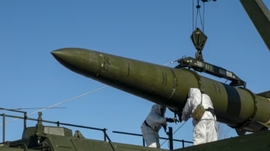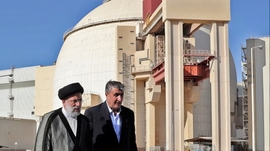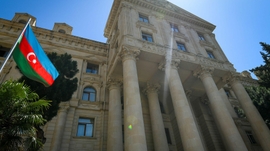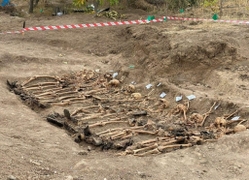Azerbaijan is commemorating today, Friday, March 31 as the Day of Genocide of Azerbaijanis, which took place 99 years ago and is considered one of the saddest pages in the county’s history.
The day marks what historians call the March Days, or March Events, and refers to inter-ethnic strife and massacres of several thousand Azerbaijanis and other Muslims by the Bolsheviks and the Armenian Revolutionary Federation in Baku and adjacent areas, March 30 – April 2, 1918.
The international community has not yet recognized the crime committed against Azerbaijanis, although the casualties of the March Events exceeded the number of those killed in the Srebrenica massacre, part of the 1995 Bosnian war.
Novruz Mammadov, Deputy Chief of the Presidential Administration and the Head of Foreign Relations Department at the Administration of the Azerbaijani President, said the world “had turned the blind eye” to the event.
“Regrettably, the big powers then had turned the blind eye to those massacres. While the perpetrators of those crimes remained unpunished,” Mammadov posted to Twitter.
Azerbaijan, the nation, located on the western coast of the Caspian Sea, was experiencing difficult times in the early 20th century, after the World War I led to the collapse of the Russian Empire and catapulted Europe to violence. After the Bolsheviks overthrew the last Russian tsar in 1917, the largest country in the world in terms of land mass fell into a civil war.
Oil-rich Baku, considered a multinational hub in the South Causcasus and Transcaucasia regions, was of great interest for the newly established and unstable government led by the Bolsheviks. In order to control over this strategically important lands, Russians appointed Stepan Shaumian, who was ethnic Armenian, an Extraordinary Commissioner for Caucasus and the head of the Baku Council, or BakSoviet, and the Baku Commune. Ethnic Azerbaijanis, despite comprising the majority of the population in Baku and the rest of the country, went underrepresented in government.
Immediately after a small Azerbaijani armed detachment was disarmed and detained by the BakuSoviet without any reason on March 30, 1918. Armenians, led by Shaumian, began executing thousands of Azerbaijanis residing in Azerbaijan’s major cities.
Azad Rzayev, Dean of the History Department at Baku State University, defines genocide as the destruction of civilians on an ethnic basis.
“We are talking about a peaceful, unarmed population – mostly women, children and the elderly. That is how Jews were executed in ghettos. Azerbaijanis faced the same in 1918 in Baku, Guba, Shamakhi, Salyan and other cities,” Rzayev told Caspian News.
Rzayev stressed the role that the genocide played in forming a collective identity and sense of self-determination.
“This genocide opened the eyes of many within the Azerbaijani intelligentsia. Azerbaijanis realized that it is impossible to coexist within one state with the Bolsheviks, who united with the Armenian Dashnaktsutyun party against Azerbaijanis. If there was an idea of the autonomy of Azerbaijan within the Soviet Russia before January 1918, after the March genocide, the idea of independence began to prevail. And by May 28, 1918, the Azerbaijan Democratic Republic (ADR) was established,” Rzayev said, referring to the creation of Azerbaijan as an independent country before a full-on Soviet takeover two years later.
On July 15, 1918, the ADR created the Special Investigation Commission that collected a great number of documents and submitted them to the government. In 1919, after a Special Investigation Commission collected data chronicling the four-day massacre, the ADR parliament decided to make March 31 a day to remember the March Events as genocide. Despite the date not being recognized by the Soviet Union when it controlled the country between 1920 and 1993, modern-day Azerbaijan’s late president, Heydar Aliyev, signed a decree to commemorate March 31 as the Day of Azerbaijanis’ Genocide.
The day has also been recognized by governments within the US. In 2012, the New York State Senate adopted a resolution proclaiming March 31, 2012 as Azerbaijani Remembrance Day, noting the March Events as those "committed by the members of Armenian Dashnak party in concert with Bolsheviks against Azerbaijanis.” In 2010, Governor Jim Gibbons of Nevada had proclaimed March 31 as Remembrance Day of the 1918 massacres of Azerbaijani civilians.


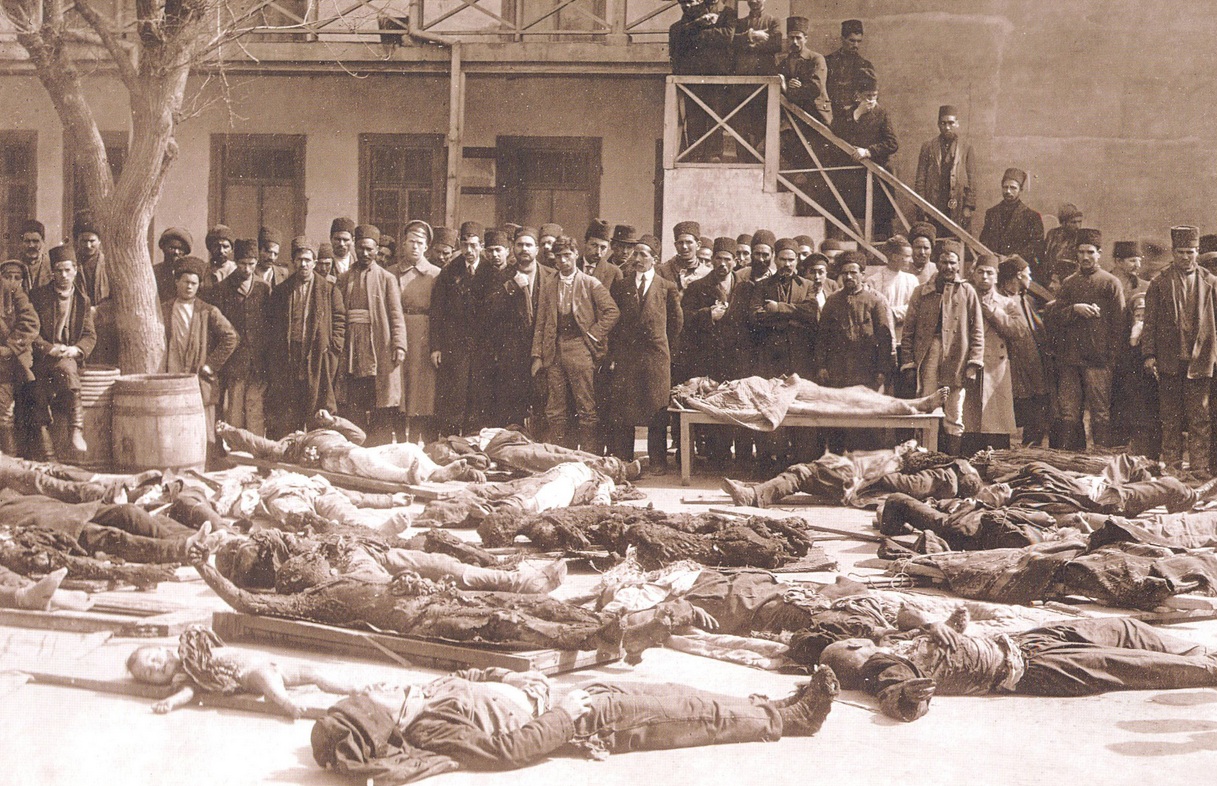




 The Azerbaijani government has rejected the recent claims made by French Interior Minister Gérard Darmanin, who accused Baku of fostering separatis...
The Azerbaijani government has rejected the recent claims made by French Interior Minister Gérard Darmanin, who accused Baku of fostering separatis...
 The Chief of the Atomic Energy Organisation of Iran (AEOI) said that the country has allowed more than 130 inspectors of the International Atomic E...
The Chief of the Atomic Energy Organisation of Iran (AEOI) said that the country has allowed more than 130 inspectors of the International Atomic E...
 Ulviyya Fataliyeva, a female Azerbaijani chess grandmaster, was crowned this week at the European Women’s Chess Championship (EWCC) in Rhodes, Gree...
Ulviyya Fataliyeva, a female Azerbaijani chess grandmaster, was crowned this week at the European Women’s Chess Championship (EWCC) in Rhodes, Gree...
 President Ilham Aliyev praised Azerbaijan’s cultural diversity as a key factor in fostering peace, stability, and unity within the country, where a...
President Ilham Aliyev praised Azerbaijan’s cultural diversity as a key factor in fostering peace, stability, and unity within the country, where a...
